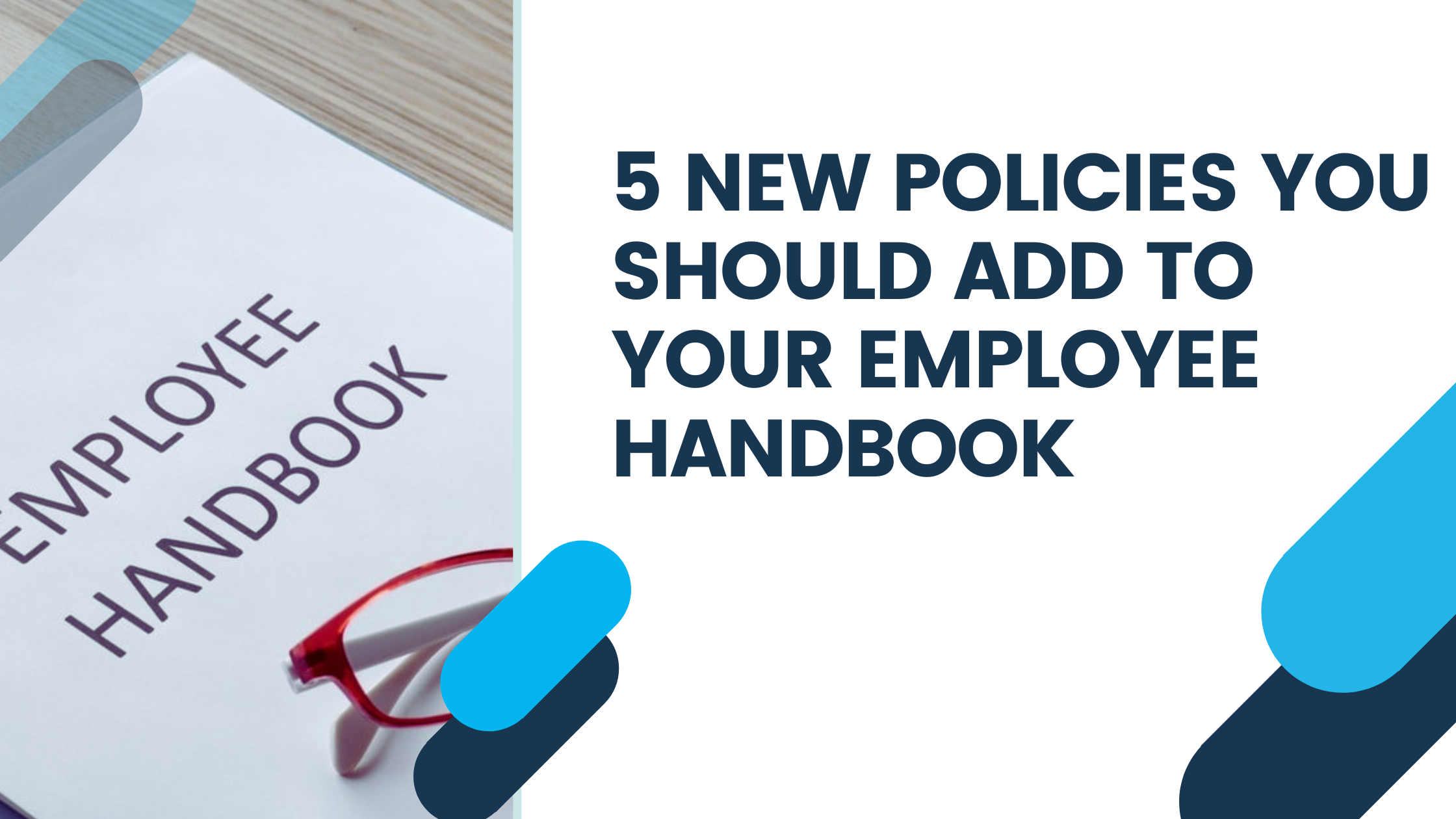5 New Policies You Should Add to Your Employee Handbook

Last week we talked about how the employee handbook can be a useful tool for communicating guidance and information related to your organization’s history, mission, values, policies, procedures, and benefits for new and existing employees.We’re hoping that you’ve put together a working handbook with our guide, but if you haven’t gotten a chance then go ahead and refresh yourself by looking at the article again. This week we wanted to think about things that you could add to your existing manual. We’ve thought about five new polices that you can think about adding to your handbook to improve your workplace.
5 New Policies to think about
Telecommuting Policy
Because of the COVID-19 pandemic telecommuting has exploded as a popular option for employers to keep their employees safe. In other posts we have highlighted the benefits of remote work and how it can end up saving money in the long term. If you plan to keep a small group of employees that will continue to work from home after the pandemic, then it may be beneficial to outline in your employee handbook how you want them to operate from home.
Equal Employment Opportunity
States and municipalities across the country have been passing a slew of laws that extend equal employment opportunities. These laws have extended protections for employees who are not protected under federal law such as medical marijuana users or those who identify as lesbian, gay, bisexual, or transgender. Employers who fall under these laws should review them and update their employee handbooks accordingly to better protect themselves from litigation.
Personal Vehicle Usage
This one may seem strange, but it has come up enough times for us that we thought it was worth mentioning. If you run a business that involves employees using their personal vehicles extensively to conduct business, then it may be worth outlining in your employee handbook how employees will be reimbursed or what standards must be met when driving on the clock.
Travel and Expense Policy
Similar to the personal vehicle usage, if your business requires your employees to travel extensively then it may be worth including in your employee handbook how your employees would be reimbursed for doing so. It may also be beneficial to think about what should be reimbursed, such as food, rideshare fares, and hotel expenses.
Smoke-Free Workplace Policy
With e-cigarettes and other tobacco substitutes becoming more popular, states have begun to enact laws that prohibit all “smoking” in the workplace. It would be worth reviewing what your local laws are, as some employers may be required to post notices, provide designated smoking areas, or ban all smoking together.
One Last Word
What policies you choose to implement should be unique to your business and the goals of your organization. The five that we outlined here are some policies that we think are worth reviewing or adding with the changing landscape of the American workplace. Remember that if you change or add to your employee handbook you should keep it simple for your employees to understand, but comprehensive enough to cover for liability.As with most of our recommendations on this blog, these policies should be reviewed and updated as the laws change. Your employee handbook is a powerful tool in your business toolbox to help your business take official stances on complex issues and outline how your employees should conduct business in the workplace.
Looking to create your employee handbook, but don’t know where to start? SolveHR’s team of HR experts can help you create a handbook that addresses all of the company policies that your organization needs. We make HR easy so you can focus on what matters—Growing your business!
Experience Hassle-Free Payroll Today
Request a demo to see our services in action!

